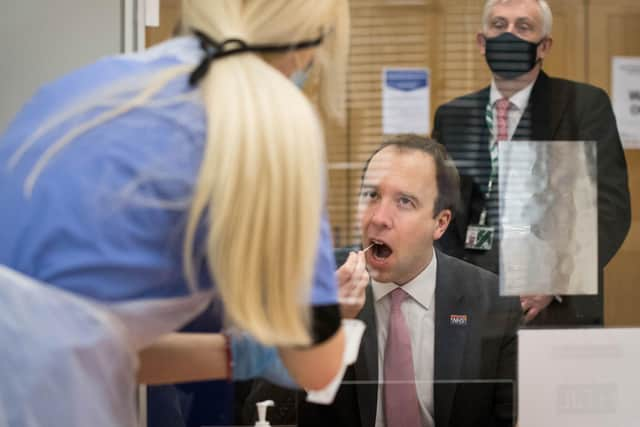Why workplace testing has to be a key part of our economic restart - Beckie Hart
Yet in recent weeks, a different kind of statistic has begun to dominate coverage – and this time, the rapidly-rising numbers represent good news.
Around half a million people a day are now being protected from infection through vaccination. That’s an astonishing achievement from a standing start and gives real hope that the worst of this pandemic is at last beginning to recede.
Advertisement
Hide AdAdvertisement
Hide AdThe prospect of protection for our most vulnerable is something we can all be thankful for and the Government, alongside the nation’s tireless army of vaccinators and health workers, deserves immense credit for the speed and efficiency of progress.


Yet while the vaccine rollout injects us with fresh optimism, it also can’t come quickly enough. Across Yorkshire and the Humber, many firms and jobs remain under severe pressure, vast swathes of the economy have been laid low, with some sectors particularly hard hit. And while the vaccine offers genuine hope, it isn’t a panacea when it comes to getting the economy firing up again.
Workplace testing must also become commonplace. It will be a key part of our armoury for the economic restart.
By putting workplace testing regimes in place now, more firms can hit the ground running when it’s safe to reopen. Regular testing using rapid lateral flow devices – particularly those workplaces where staff are in closer proximity – can help protect staff, catch asymptomatic cases quicker and give consumers confidence.
Advertisement
Hide AdAdvertisement
Hide AdWe have been hampered throughout the crisis by not knowing enough about who is carrying the virus when showing no symptoms.


But knowledge is power – the more we learn through greater workplace testing, the sooner normality can resume; safer returns to offices, pubs and warehouses; our city centres humming once again, attending live events and, yes, even rebooting those holiday plans.
It will be a combination of effective vaccines and more testing that will lead us away from rising infections and damaging lockdowns. That’s why building an effective workplace testing infrastructure – and culture – will be critical to managing Covid-19 in the future.
There is work to do, however. Recent CBI research shows 87 per cent of firms are not yet undertaking workplace testing. Many businesses cited a lack of expertise and unclear guidance or operational, logistical and regulatory complexity for not testing.
Advertisement
Hide AdAdvertisement
Hide AdYet we desperately need the take-up of numbers to increase, and those barriers to be overcome, to get the best possible start on economic recovery. For our region’s firms seeking solutions to enable business to resume, it’s a pathway well worth exploring.


Increasing testing uptake is also an opportunity for business and Government to work together, as they have done so impressively throughout the pandemic. Key to that is improving guidance and sharing best practice.
The Government has offered a helping hand to businesses of more than 50 employees to be part of a testing programme, while local authorities are tasked with reaching smaller businesses.
That is currently due to finish at the end of March when much of the Yorkshire and the Humber economy will still be facing restrictions and before workplace testing has really taken off.
Advertisement
Hide AdAdvertisement
Hide AdGovernment support will have to continue beyond that point and for some months to come.
The Covid-19 crisis has been long and cost too many lives and livelihoods. From vaccines to workplace testing, we must use every tool at our disposal to protect against further harm.
With support from Government, business must once more step into the breach.